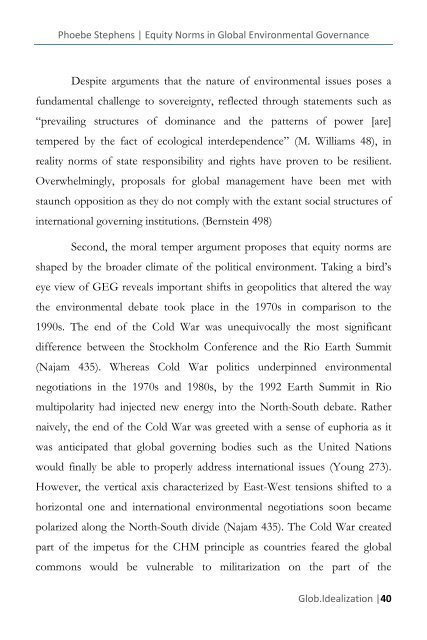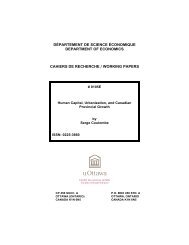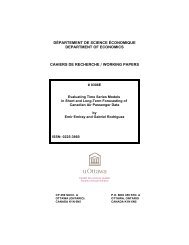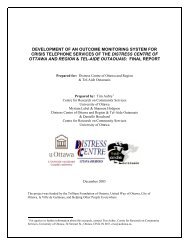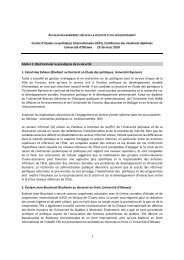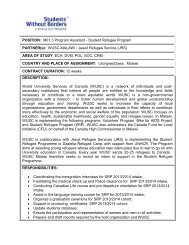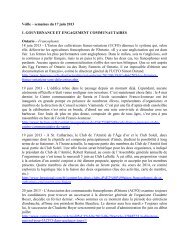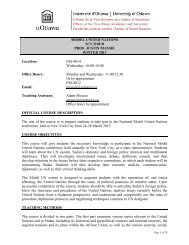GLOB.IDEALIZATION MOND.IDÉALISATION - Faculty of Social ...
GLOB.IDEALIZATION MOND.IDÉALISATION - Faculty of Social ...
GLOB.IDEALIZATION MOND.IDÉALISATION - Faculty of Social ...
You also want an ePaper? Increase the reach of your titles
YUMPU automatically turns print PDFs into web optimized ePapers that Google loves.
Phoebe Stephens | Equity Norms in Global Environmental Governance<br />
Despite arguments that the nature <strong>of</strong> environmental issues poses a<br />
fundamental challenge to sovereignty, reflected through statements such as<br />
“prevailing structures <strong>of</strong> dominance and the patterns <strong>of</strong> power [are]<br />
tempered by the fact <strong>of</strong> ecological interdependence” (M. Williams 48), in<br />
reality norms <strong>of</strong> state responsibility and rights have proven to be resilient.<br />
Overwhelmingly, proposals for global management have been met with<br />
staunch opposition as they do not comply with the extant social structures <strong>of</strong><br />
international governing institutions. (Bernstein 498)<br />
Second, the moral temper argument proposes that equity norms are<br />
shaped by the broader climate <strong>of</strong> the political environment. Taking a bird’s<br />
eye view <strong>of</strong> GEG reveals important shifts in geopolitics that altered the way<br />
the environmental debate took place in the 1970s in comparison to the<br />
1990s. The end <strong>of</strong> the Cold War was unequivocally the most significant<br />
difference between the Stockholm Conference and the Rio Earth Summit<br />
(Najam 435). Whereas Cold War politics underpinned environmental<br />
negotiations in the 1970s and 1980s, by the 1992 Earth Summit in Rio<br />
multipolarity had injected new energy into the North-South debate. Rather<br />
naively, the end <strong>of</strong> the Cold War was greeted with a sense <strong>of</strong> euphoria as it<br />
was anticipated that global governing bodies such as the United Nations<br />
would finally be able to properly address international issues (Young 273).<br />
However, the vertical axis characterized by East-West tensions shifted to a<br />
horizontal one and international environmental negotiations soon became<br />
polarized along the North-South divide (Najam 435). The Cold War created<br />
part <strong>of</strong> the impetus for the CHM principle as countries feared the global<br />
commons would be vulnerable to militarization on the part <strong>of</strong> the<br />
Glob.Idealization |40


